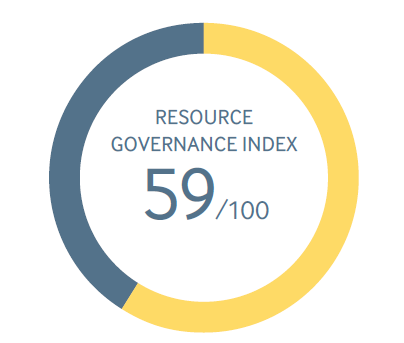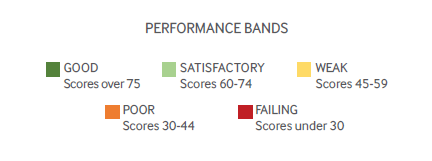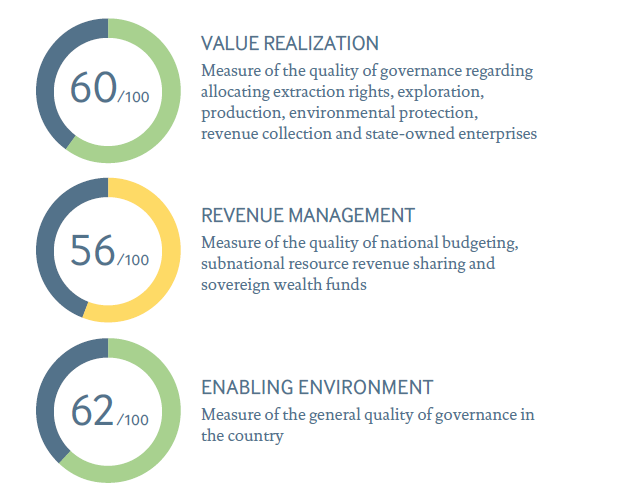
2021 Resource Governance Index: Mexico (Mining)
Mexico’s mining sector scored 59 out of 100 points in the 2021 Resource Governance Index (RGI), up by one point since the 2019 Interim Evaluation, but down a point since the 2017 RGI, suggesting the sector has stagnated at the upper edge of the “weak” performance band. The main challenges are associated with transparency of licensing, local impacts and subnational revenue sharing, though the assessment shows improvements in the transparency of taxation, specifically in production and export disclosures.
Key findings:
- Mexico’s ability to realize value from its mining sector has decreased since the 2017 RGI, due to deteriorations in the governance of licensing.
- The governance of local impacts scored 46 points, placing in the “weak” performance band. A large implementation gap remains between the laws in place and the actual timely disclosures of environmental and social assessments.
- The governance of the Fund for Sustainable Regional Development of States and Municipalities, better known as the “Fondo Minero” (Mining Fund), deteriorated by 12 points due to “poor” disclosures of subnational transfers.
- The gap between enacted laws and their enforcement widened to 30 points in the 2021 RGI, increasing progressively since the 2017 RGI and 2019 interim evaluation, signaling a disconnect between the legal framework and implementation.
To improve resource governance, NRGI recommends the following courses of action:
- The Ministry of Economy should improve the availability of information on mining operations in a centralized, updated online data portal. Cartominmex could act as an integrated source of information for both new and existing mining operations, as well as mining bids. An updated EITI portal also has potential to act as a repository of mining data.
- The new Congress and Ministry of Finance should work collaboratively with both civil society actors and extractive companies to introduce regulations requiring disaggregated information of project payments on a project-by-project basis.
- SEMARNAT and the Ministry of Economy should prioritize the implementation of the Ecological Equilibrium and Environment Protection Law to improve the management of local impacts in the mining sector, including the disclosure of environmental impact assessments and environmental mitigation plans. This information should be linked to project profiles available in the data portals of the Ministry of Economy.
- The federal government should improve transparency regarding the contribution of the mining industry to local development, especially in mining-intensive areas. Despite the changes in its design, the transfers from the Mining Fund should still be traceable back to mining territories.
The 2021 RGI assesses how 18 resource-rich countries govern their oil, gas and mineral wealth. The index composite score is made up of three components. Two measure key characteristics of the extractives sector – value realization and revenue management – and a third captures the broader context of governance — the enabling environment. These three overarching dimensions of governance consist of 14 subcomponents, which comprise 51 indicators, which are calculated by aggregating 136 questions. For more information on the index and how it was constructed, review the RGI Method Paper.


